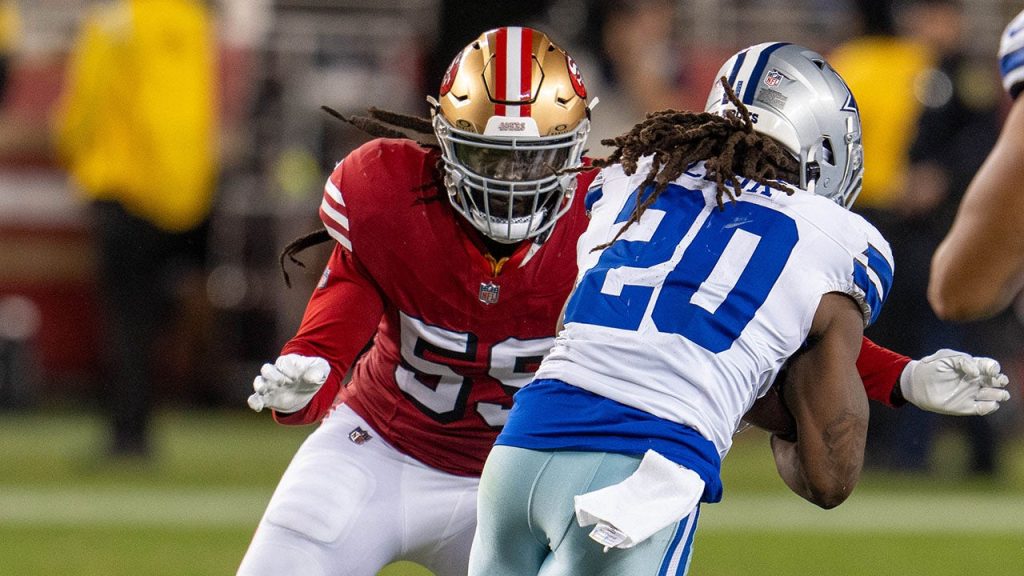The San Francisco 49ers organization was thrown into disarray on Thursday night following a surprising act of insubordination by linebacker De’Vondre Campbell during their game against the Los Angeles Rams. Campbell, a seasoned veteran who had signed a one-year deal with the 49ers in the offseason, refused to enter the game when called upon by head coach Kyle Shanahan. This unexpected refusal occurred after starting linebacker Dre Greenlaw, who had recently returned from an Achilles injury sustained in the Super Bowl loss to the Kansas City Chiefs, experienced soreness in his Achilles tendon. Campbell’s refusal left the 49ers short-handed and arguably contributed to their 12-6 loss to the Rams.
The incident sparked immediate controversy and raised questions about Campbell’s commitment to the team. Shanahan expressed his disbelief and frustration, stating publicly that he had not received an explanation from Campbell regarding his refusal to play. The coach’s disappointment was palpable as he emphasized that such behavior is unacceptable within the team’s culture and would not be tolerated. The 49ers’ locker room also reflected the shock and disapproval of Campbell’s actions, with players expressing their disappointment and emphasizing the importance of teamwork and dedication.
The repercussions of Campbell’s insubordination were swift and severe. Reports emerged on Sunday that the 49ers were likely to suspend Campbell for the remainder of the season, effectively ending his tenure with the team. Shanahan confirmed on Friday that he did not expect Campbell to be with the team beyond Week 15, further solidifying the linebacker’s impending departure. While the exact details of the disciplinary action were still being finalized, it was clear that the 49ers intended to send a strong message that such behavior would not be condoned.
Campbell’s refusal to enter the game against the Rams not only disrupted the 49ers’ game plan but also raised concerns about the team’s overall cohesion and discipline. The incident highlighted the delicate balance between individual player concerns and the collective responsibility to the team. Campbell’s actions, irrespective of his personal reasons, undermined the team’s unity and potentially impacted the morale of his teammates. His refusal to play placed an added burden on the remaining players, particularly Greenlaw, who was already dealing with a physical ailment.
The situation underscored the importance of communication and trust within a professional sports team. Shanahan’s statement that he had not received an explanation from Campbell pointed to a breakdown in communication between the player and the coaching staff. The lack of clarity surrounding Campbell’s motivations fueled speculation and exacerbated the already tense situation. In a high-pressure environment like professional football, where teamwork and reliability are paramount, such breakdowns in communication can have significant consequences.
De’Vondre Campbell’s career, prior to this incident, had been marked by both success and transition. A one-time All-Pro, he had spent the previous three years with the Green Bay Packers, following stints with the Arizona Cardinals and the Atlanta Falcons. He had joined the 49ers in the offseason, hoping to contribute to a team with Super Bowl aspirations. However, his refusal to play against the Rams effectively ended his time with the 49ers and cast a shadow over his future in the NFL. The incident serves as a stark reminder of the importance of professionalism and commitment in professional sports. It remains to be seen what the future holds for Campbell, but his actions against the Rams will undoubtedly impact his career trajectory.

